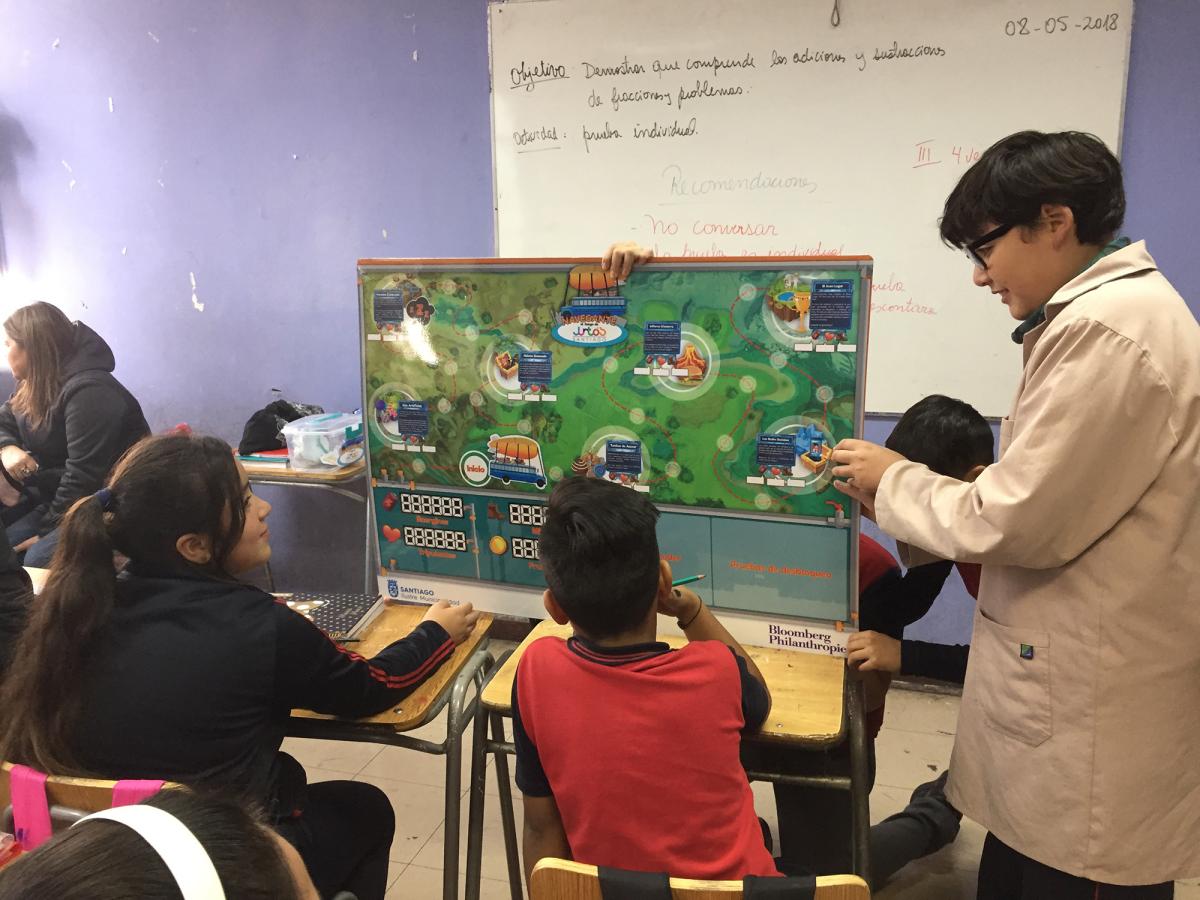World Health Organization
WHA78: Member States highlight the crucial role of the GCM/NCD in driving multisectoral and multistakeholder action on NCDs
Meaningful Engagement of People with Lived Experiences
27 May 2025
World Health Organization | 21 Nov 2022
In Chile, childhood obesity has doubled over the last two decades, and recent studies show that over 50% of pre-school children in Chile are overweight. Children with obesity are more likely to remain overweight or obese as adults and can develop NCDs like diabetes and cardiovascular diseases at a younger age. Ultra-processed foods such as sugary beverages, ready-made desserts and fast food are considered a main driver of the obesity epidemic. In many Latin American countries, sales of ultra-processed food have increased dramatically in recent years due to rapid urbanization and free-trade agreements.
Juntos Santiago uses mobile technology and a gamification strategy to motivate children in several schools in Santiago de Chile to eat healthier and engage in or do more physical activity. Tracking steps with pedometers, scanning food products using smartphones and playing a board game with classmates creates a fun environment with incentives for children, parents and teachers to promote and follow a healthier lifestyle. The project also uses a participatory approach, involving students in the design of the challenges, games and online activities.

In participating schools, students aged 10–12 are awarded points and prizes based on challenges and activities playing a game called Navigator. They also score points for the nutritional quality of the snacks they bring from home, which are scanned using a smartphone application. A pedometer awards points based on students’ daily step count. Uploading photos of healthy family activities such as cooking together or walking on weekends can earn them additional points, and they unlock game challenges by working with teachers. Students can track their progress in real time through a website and can communicate via a chatbot and weekly WhatsApp messages to parents and teachers. In each school, the project is supported by a team of nutritionists and physical activity teachers, working closely with faculty, parents and students.
An evaluation using a randomized controlled trial among 2,197 students (653 control) in 24 schools (9 control) over seven months showed a lower body mass index (BMI) and systolic blood pressure in participating students. On average, the project helped students to reduce their BMI by 0.42kg/m2 and prevented some 860g of weight gain. Since its launch as a pilot in 2017, the project successfully scaled to reach 6,800 students in 2019.
This NCD Lab project was the winning submission in the category NCDs and the Next Generation. The project was submitted to the first NCD Lab cycle by project lead Macarena Carranza Pérez-Tinao.